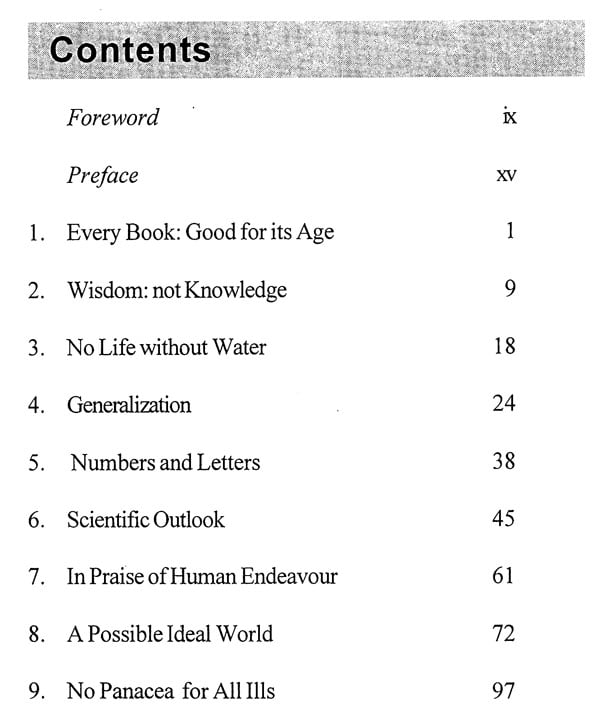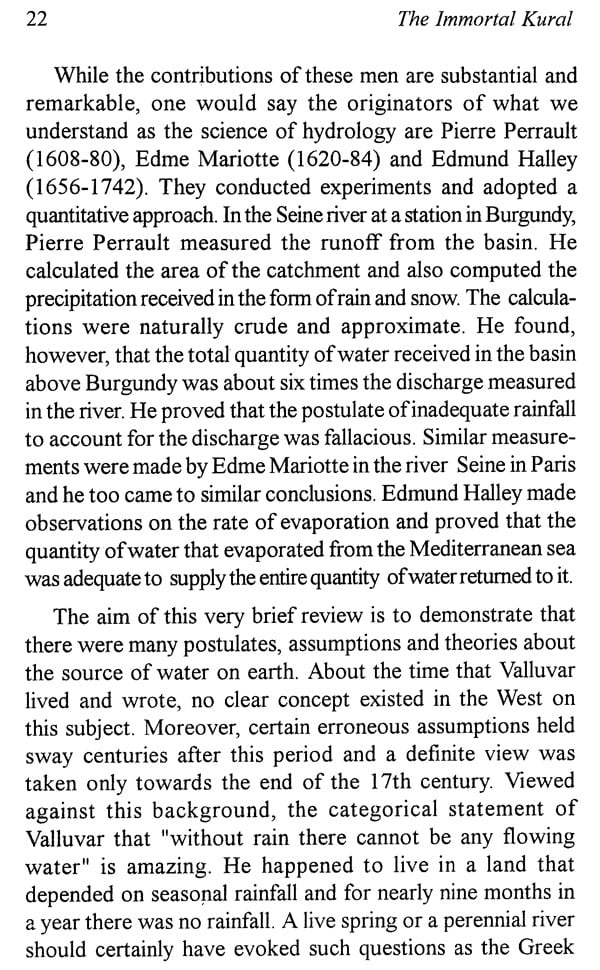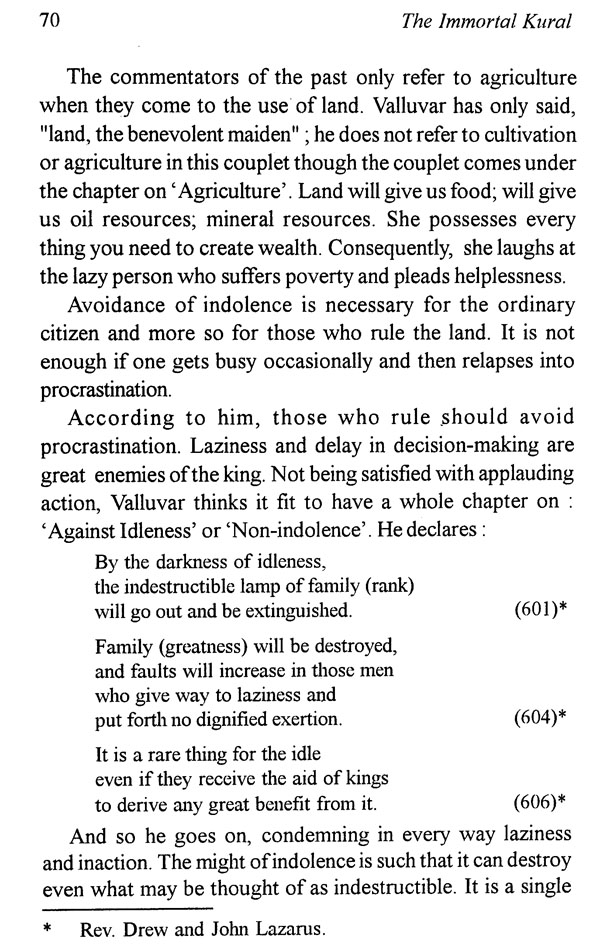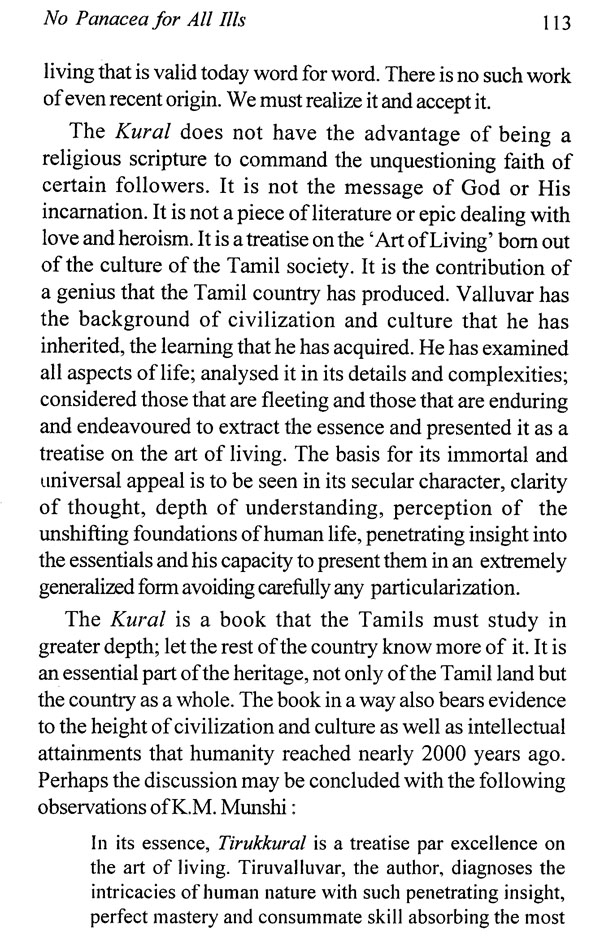
The Immortal Kural
Book Specification
| Item Code: | NAX431 |
| Author: | V.C. Kulandai Swamy |
| Publisher: | Bharatiya Vidya Bhavan, Mumbai |
| Language: | English |
| Edition: | 2002 |
| ISBN: | 8172015895 |
| Pages: | 114 |
| Cover: | PAPERBACK |
| Other Details | 8.50 X 5.50 inch |
| Weight | 180 gm |
Book Description
The author highlights Valluvar's penetrating insight into the unshifting foundations of life and his extraordinary genius for abstraction and generalization. It is strikingly different from any book or commentary so far written on the Kural. Presenting the Award for 1988, the Sahitya Akademi in its citation states that "for the perceptiveness, analytical approach and scholarly treatment, the book has been hailed as a contribution to contemporary Tamil Literature".
A well known writer in Tamil, his literary contributions comprise mainly poems; he has also written articles and books on varied topics ranging from literary criticism to modernization of Tamil language. His poems under the pen-name Kulothungan have appeared in six volumes.
The University of Jaffna, Srilanka and five other universities in India conferred D.Litt (honoris causa)/D.Sc. (honoris causa) on him. Prof. Swamy was given SAHITYA AKADEMI AWARD in 1988 and was conferred the national honour of PADMA SHRI in 1992 and PADMA BHUSHAN in 2002 by the President of India.
The Kural was written two thousand years ago by a great Tamilian, Thiruvalluvar, also referred to as Valluvar. His greatness has been poetically acknowledged by Mahakavi Subramania Bharati when he says Tamil Nadu has attained glory by giving to the world the Kural's author Valluvar.
The Kural contains three parts, dealing with three aspects of human pursuit, Aram, Porul and Inbam. In Sanskrit, these are expressed as Dharma, Artha and Kama.
The Bible will endure as long as Christianity lasts; so will the Koran as long as Islam has its followers. No one who is a believer in a religion will question the validity or relevance of its scriptures. They are supported and sustained by the respective faiths. Epics like the Mahabharata and the Ramayana remain immortal because of the beauty of the poems and the portrayal of characters that have a perennial appeal. When it comes to lyric poems, lines such as 'A thing of beauty is a joy for ever' or 'the old order changed, yielding place to new, lest one good custom should corrupt the world,' are poetic truths that will never age. But books on diplomacy or statecraft or norms of conduct and counsel for monarchs, ministers or managers cannot last long in a fast-changing world in terms of their practical value and validity. We do praise Chanakya’s Artha Sastra; we admire Machiavelli' s Prince for the insight evident in the treatment.
Book's Contents and Sample Pages










